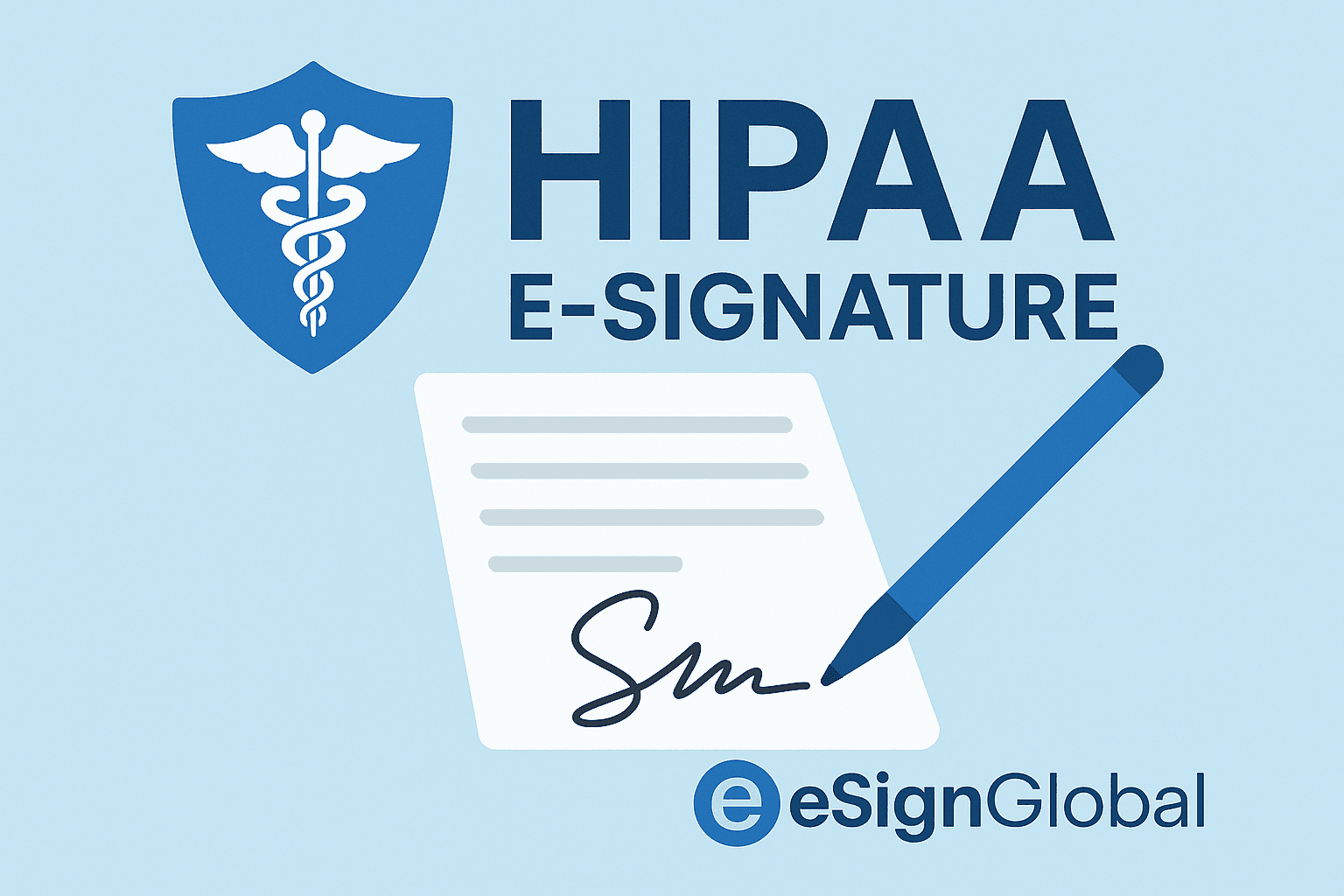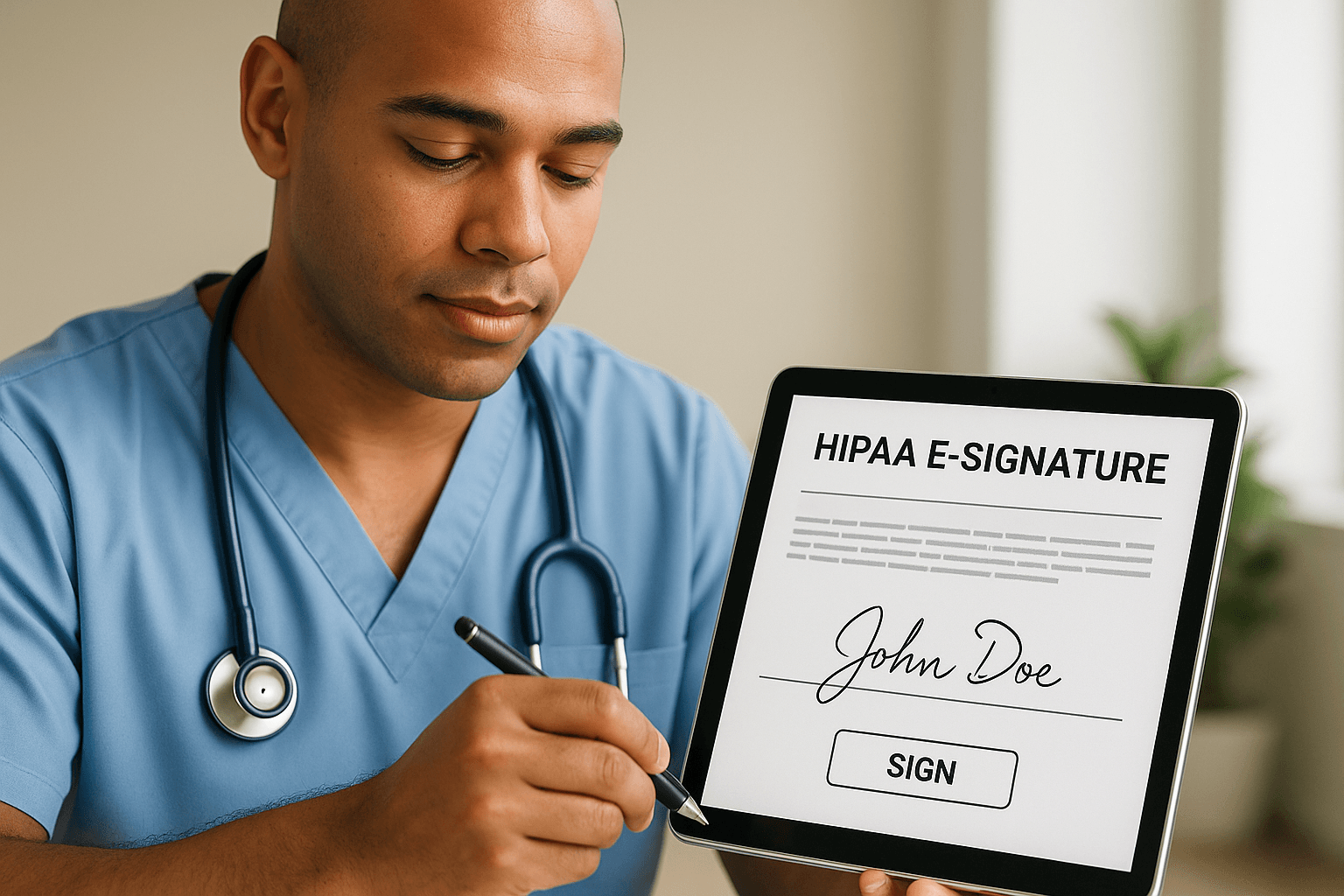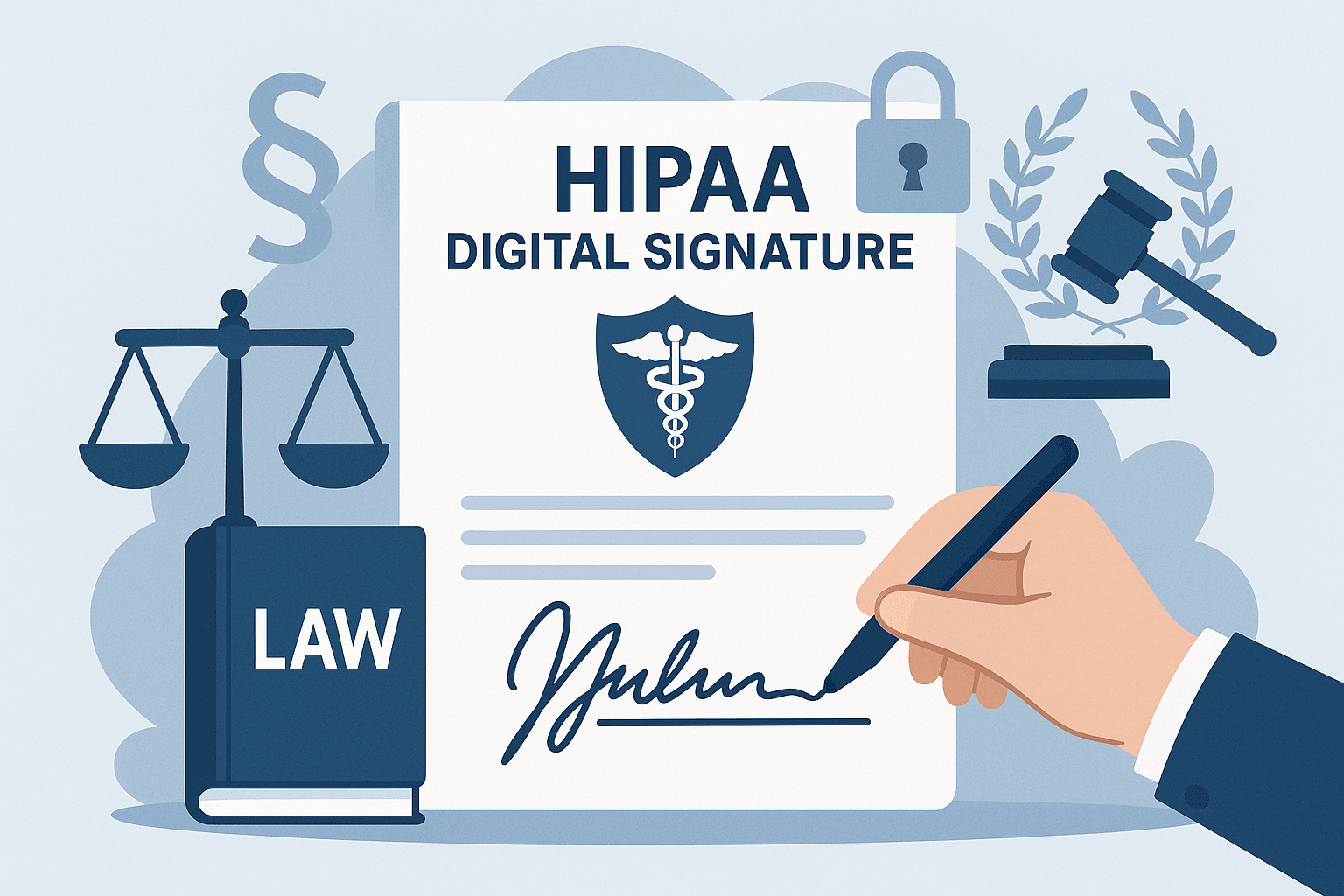WhatsApp or email with our sales team or get in touch with a business development professional in your region.
HIPAA E-Signatures in Telemedicine: Applications and Challenges





Navigating HIPAA Compliance with eSignatures: A Healthcare Industry Perspective
Across the healthcare landscape, digital transformation continues to reshape how information is collected, managed, and exchanged. Among the most critical aspects of this transition is the integration of electronic signature (eSignature) technology — a tool that, when used correctly, offers immense efficiency while respecting strict regulatory frameworks. In the U.S., these frameworks are strongly governed by the Health Insurance Portability and Accountability Act (HIPAA), a federal law that mandates the secure handling of protected health information (PHI). For healthcare providers, insurers, and vendors alike, ensuring eSignature platforms are HIPAA-compliant is not just a legal requirement — it’s integral to earning patient trust and avoiding penalties.

Understanding the Legal Basis: HIPAA and Digital Documentation
To appreciate how eSignatures fit into the healthcare regulatory landscape, it’s important to understand the two main Rules under HIPAA: the Privacy Rule and the Security Rule. The Privacy Rule sets standards for the use and disclosure of PHI, while the Security Rule outlines the administrative, physical, and technical safeguards required to protect this data in electronic form (ePHI).
HIPAA does not expressly prohibit the use of electronic signatures. In fact, it permits them, provided that the system used to capture signatures ensures data integrity, non-repudiation, and strong access control. What matters most to regulators is that any system handling ePHI — including eSignature platforms — adheres to the specific criteria of robust authentication, secure transmission, audit trails, and access logging.
This means healthcare organizations cannot choose consumer-grade or general-purpose eSignature tools without careful assessment. They must seek platforms that either offer Business Associate Agreements (BAAs) or can be bound by one, since the use of ePHI by third-party vendors legally defines them as business associates under HIPAA.
The Repercussions of Noncompliance
The costs of HIPAA noncompliance are not merely financial — although the penalties are significant, ranging from $127 to $63,973 per violation depending on the degree of negligence, according to the U.S. Department of Health and Human Services (HHS). Equally critical are the reputational risks. In 2022, a mid-sized rehabilitation center in Ohio faced a $250,000 fine after using an unvetted digital document platform that inadvertently exposed over 3,000 patient records. Beyond the penalty, patient attrition and legal actions drove their operational losses into seven figures within months.

Why eSignGlobal Excels in a HIPAA-Governed Environment
eSignGlobal stands out as a high-performance, healthcare-focused eSignature platform designed specifically for regulated industries. Unlike generalized eSignature providers, eSignGlobal embeds HIPAA compliance at the core of its architecture. This includes:
- End-to-end encryption (AES-256) of all documents and metadata
- Enforced multi-factor authentication (MFA) to validate user identities
- Full, immutable audit trails that meet both HIPAA and CFR Part 11 standards
- Seamless integration with electronic health records (EHR) platforms such as Epic and Cerner
- Business Associate Agreement (BAA) issuance for all HIPAA-covered entities
From a legal perspective, eSignGlobal’s commitment to HIPAA compliance extends beyond software features. The company routinely undergoes third-party security audits, maintains ISO 27001 certification, and is listed in the Federal Risk and Authorization Management Program (FedRAMP) marketplace. This level of scrutiny instills confidence — whether you’re a multi-site hospital network or a local physician group.
Practical Applications in Healthcare Workflows
Use cases for HIPAA-compliant eSignatures span the breadth of the patient journey. Patient intake forms, informed consent documents, insurance authorizations, and telehealth agreements can all be handled using eSignGlobal, significantly reducing paperwork while boosting operational efficiency.
For instance, a large integrative health system in Texas reported a 72% acceleration in patient intake workflow after deploying eSignGlobal. Notably, they also reduced document rejection rates by 43%, thanks to real-time validation and digital certificate linking. This direct impact on service speed and accuracy supports both compliance and improved patient experiences — two highly correlated healthcare KPIs.

Economic and Operational Incentives
From a cost-effectiveness standpoint, adopting a specialized platform like eSignGlobal delivers measurable returns. Administrative labor reductions, decreased document cycle times, fewer legal exposures, and improved patient processing all result in streamlined, leaner operations. A 2023 benchmarking study by HIT Consultant found that healthcare providers implemented HIPAA-compliant eSignatures saved an average of $5.60 per signed document — a significant figure when scaled across thousands of forms each month.
Moreover, eSignGlobal’s adherence to U.S.-based data residency and jurisdictional requirements — often overlooked with international providers — is critical for providers navigating stricter state-level mandates, such as those in California (CCPA-complementary) and Massachusetts.
Building Trust Through Compliance
Having a HIPAA-compliant eSignature solution is not solely about ticking boxes for auditors. It’s about demonstrating commitment to data integrity, safety, and patient-centric care. In an age where cybersecurity attacks on healthcare systems are constantly rising — with 2023 seeing over 700 healthcare data breaches in the U.S. alone — the secure, audit-proof nature of platforms like eSignGlobal serves as a first line of defense.
Patients today are more informed and cautious about how their data is managed. Offering a seamless yet secure digital signing experience supports their expectations while reducing organizational risk.
Conclusion: A Strategic Imperative for Modern Healthcare
Implementing a HIPAA-compliant eSignature solution such as eSignGlobal isn’t just a technical decision — it’s a strategic investment in legal readiness, patient satisfaction, and operational excellence. By aligning with national regulatory standards and embedding robust security features, eSignGlobal empowers healthcare providers to digitize with confidence. It enhances service responsiveness, boosts compliance assurance, and delivers unmatched value in a sector where trust is paramount.
Healthcare leaders looking to expand digital capabilities while minimizing risk would be well advised to prioritize vendors like eSignGlobal: not only for the compliance they bring but for the efficiency and reliability they enable.

Shunfang
Head of Product Management at eSignGlobal, a seasoned leader with extensive international experience in the e-signature industry.
Follow me on LinkedIn
Get legally-binding eSignatures now!
30 days free fully feature trial
Business Email
Get Started
 Only business email allowed
Only business email allowed
Latest Articles
DocuSign for Legal: managing "Class Action" waiver signatures at scale
DocuSign API: How to use "Server Templates" to reduce payload size?
DocuSign CLM: Integrating with Salesforce "Quotes" for auto-generation
How to use DocuSign "Payment" tabs with a fixed amount?
DocuSign vs. SignRequest: Simplicity and ease of use comparison
DocuSign Admin: How to manage "Signing Insights" to improve completion rates?
DocuSign API: How to create a "Clickwrap" agreement via API?
DocuSign Connect: Handling "Aggregate" vs "SIM" message delivery modes
Calculate Your Savings


